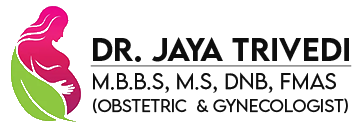Uterine prolapse occurs when pelvic floor muscles and ligaments stretch and weaken until they no longer provide enough support for the uterus. As a result, the uterus slips down into or protrudes out of the vagina.
Uterine prolapse most often affects people after menopause who've had one or more vaginal deliveries.
Mild uterine prolapse usually doesn't require treatment. But uterine prolapse that causes discomfort or disrupts daily life might benefit from treatment
Symptoms
Mild uterine prolapse is common after childbirth. It generally doesn't cause symptoms. Symptoms of moderate to severe uterine prolapse include:
- Seeing or feeling tissue bulge out of the vagina
- Feeling heaviness or pulling in the pelvis
- Feeling like the bladder doesn't empty all the way when you use the bathroom
- Problems with leaking urine, also called incontinence
- Trouble having a bowel movement and needing to press the vagina with your fingers to help have a bowel movement
- Feeling as if you're sitting on a small ball
- Feeling as if you have vaginal tissue rubbing on clothing
- Pressure or discomfort in the pelvis or low back
- Sexual concerns, such as feeling as though the vaginal tissue is loose

